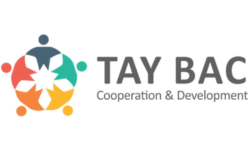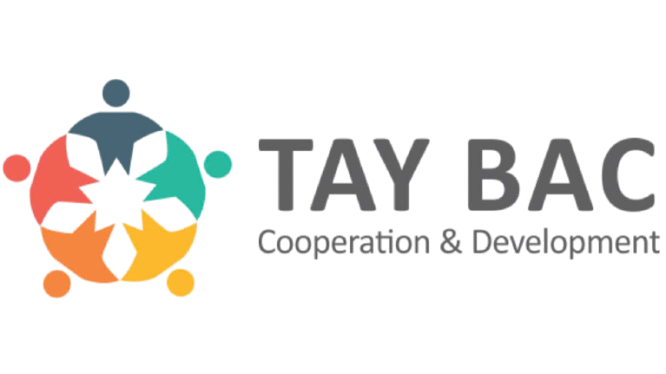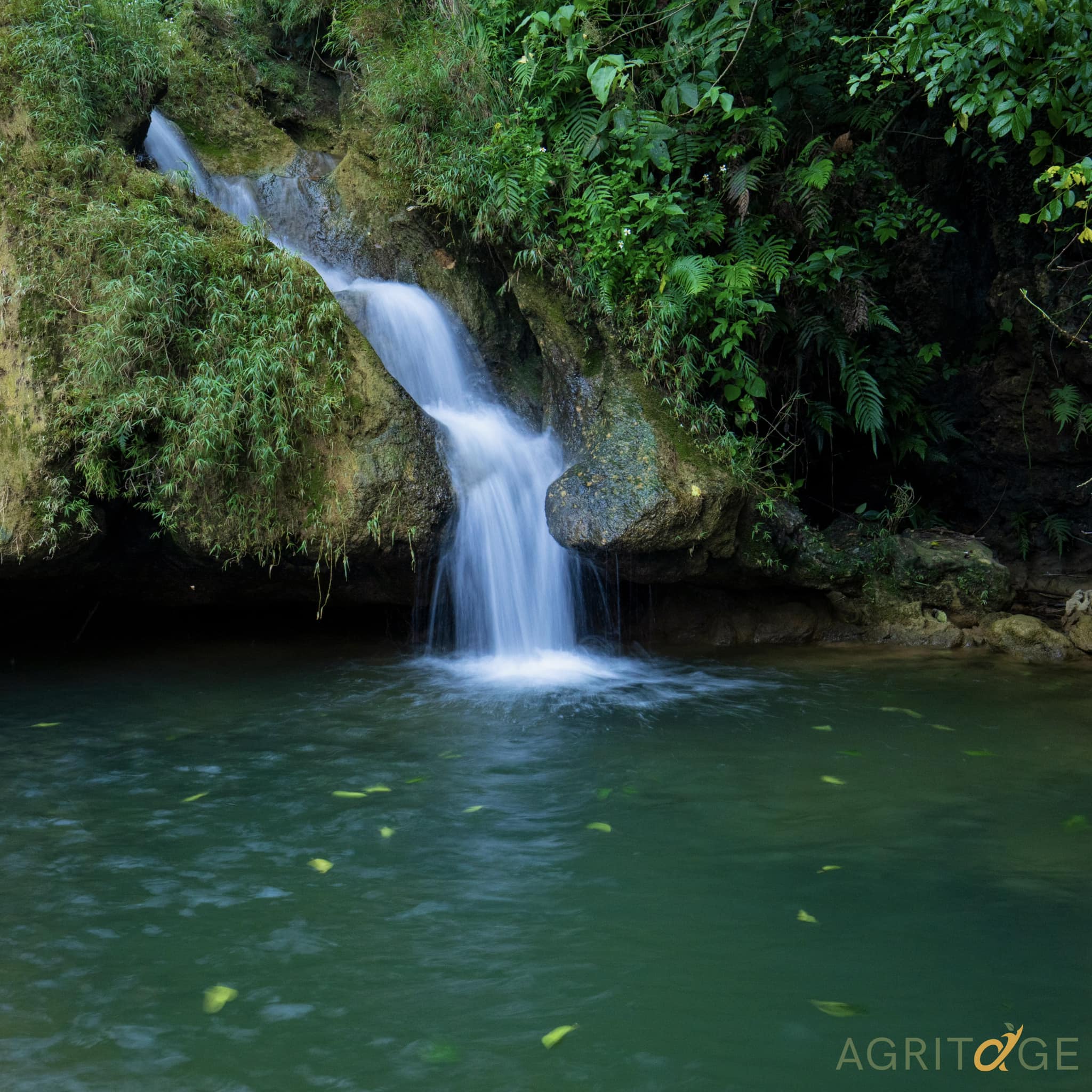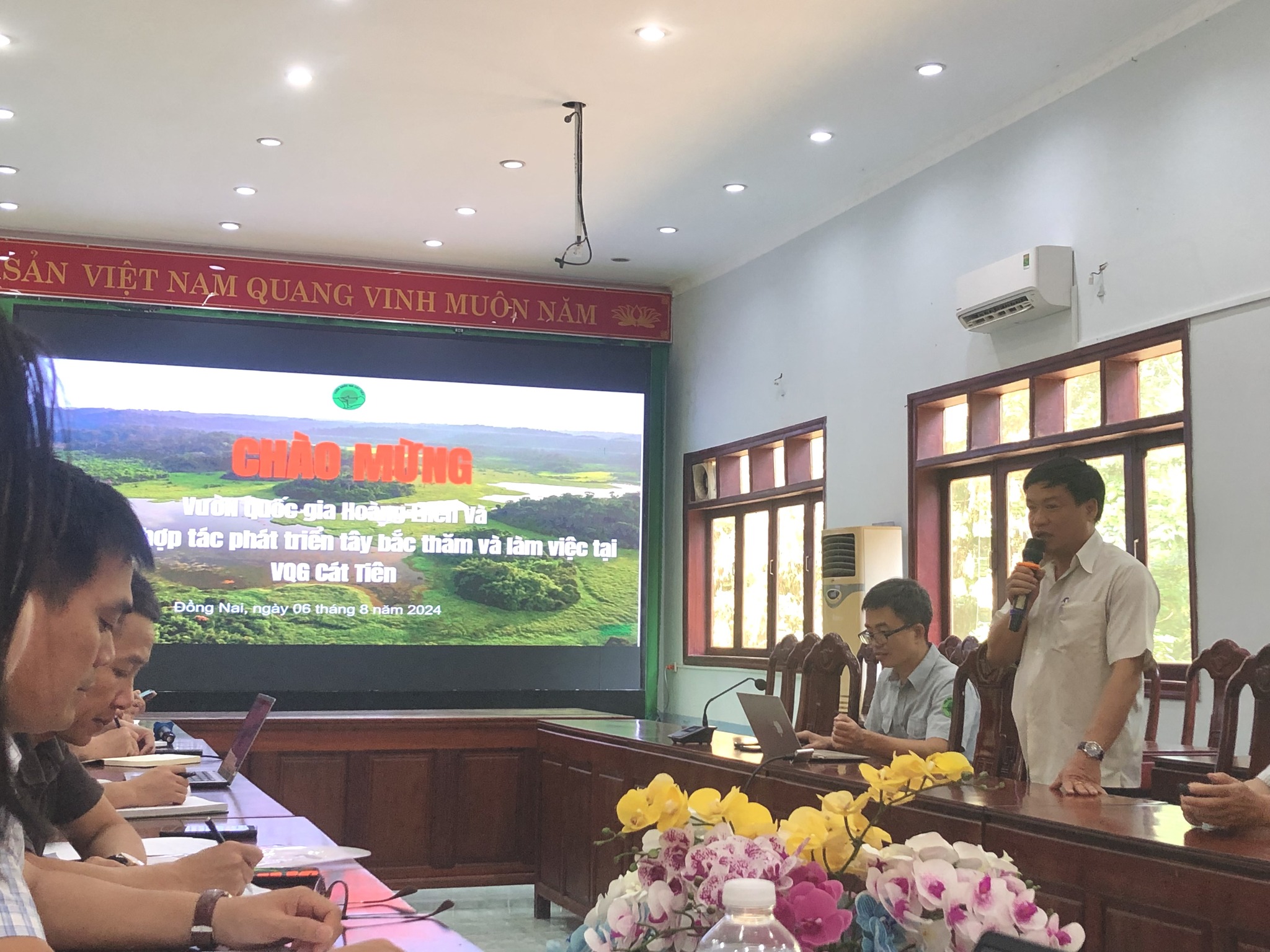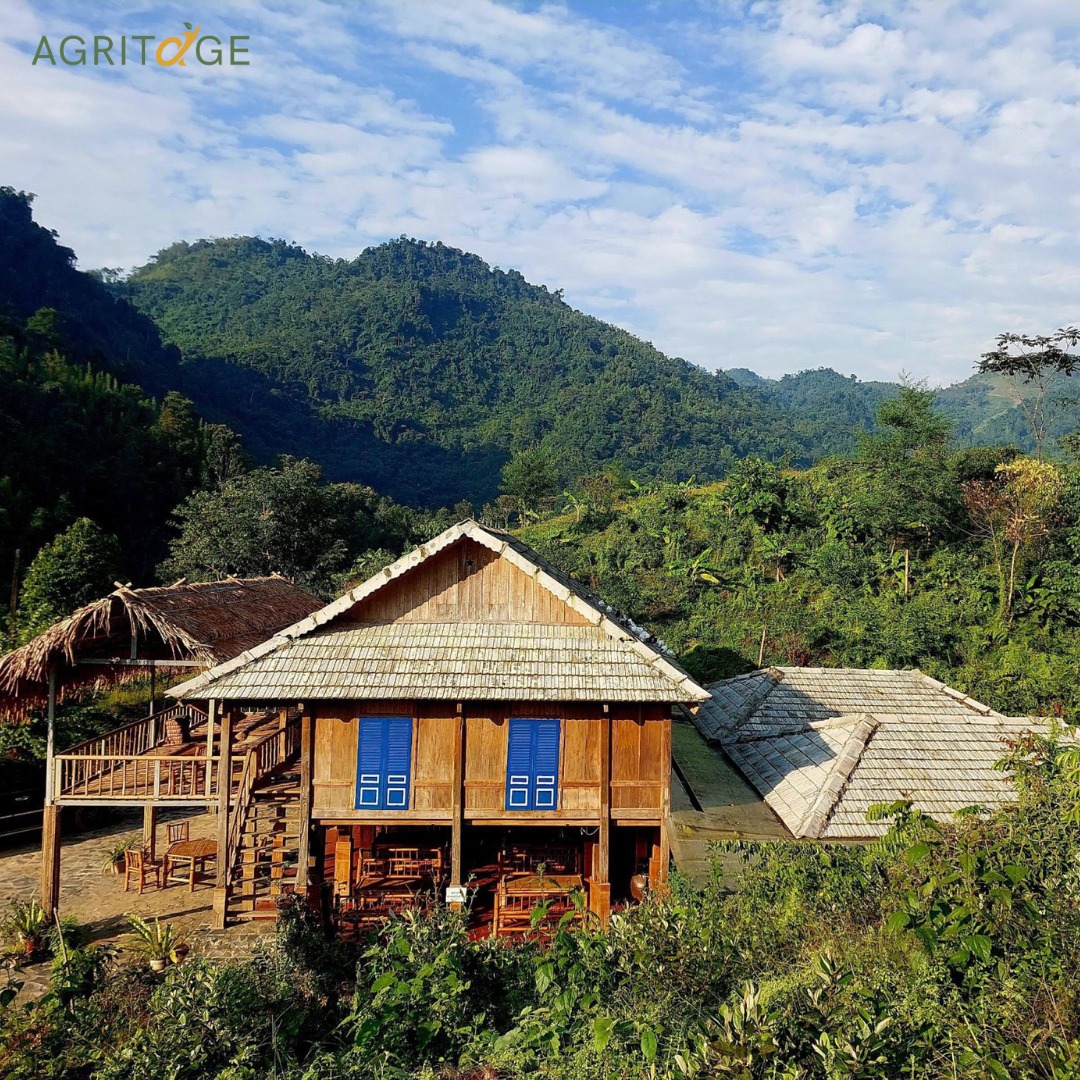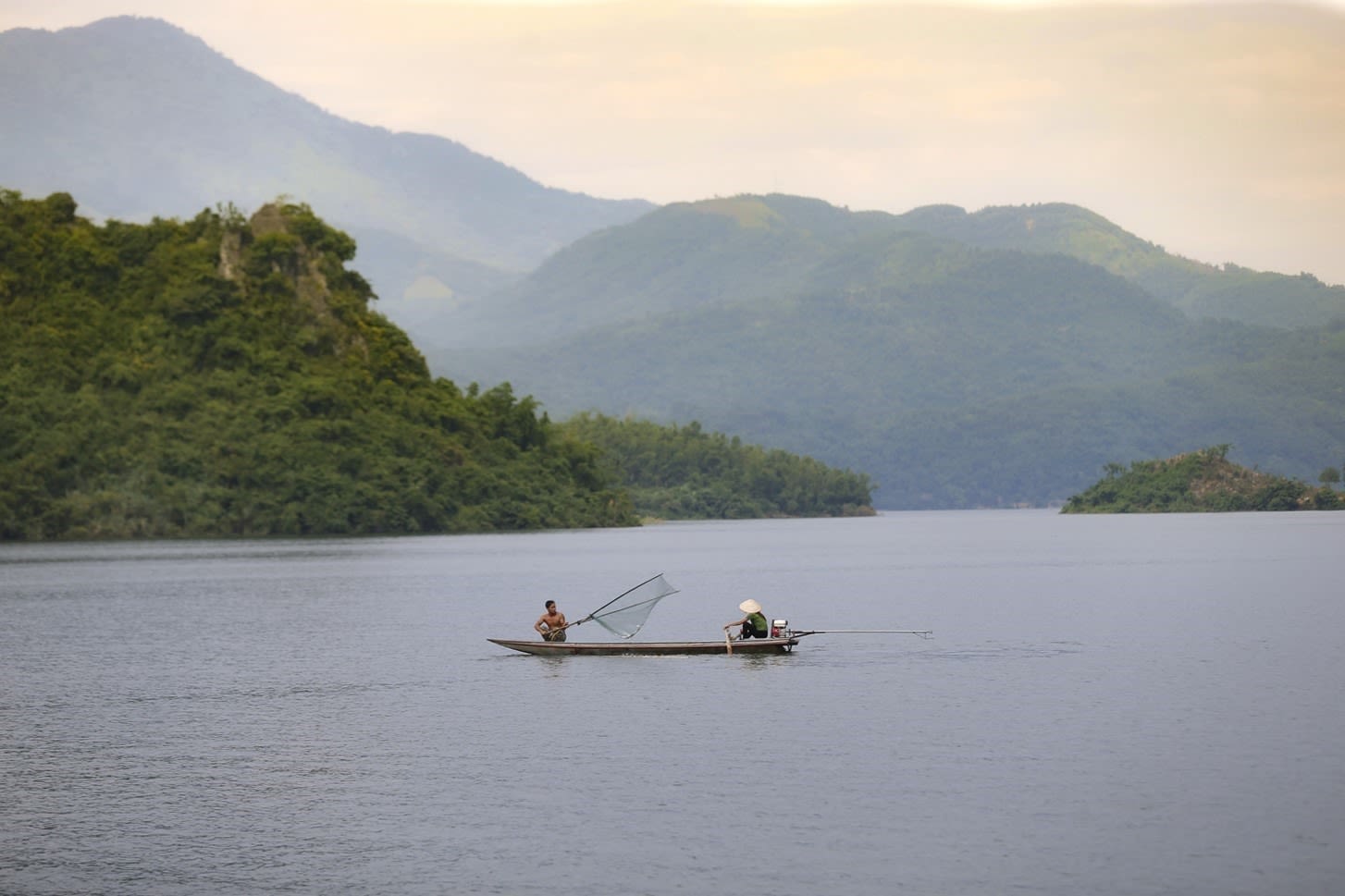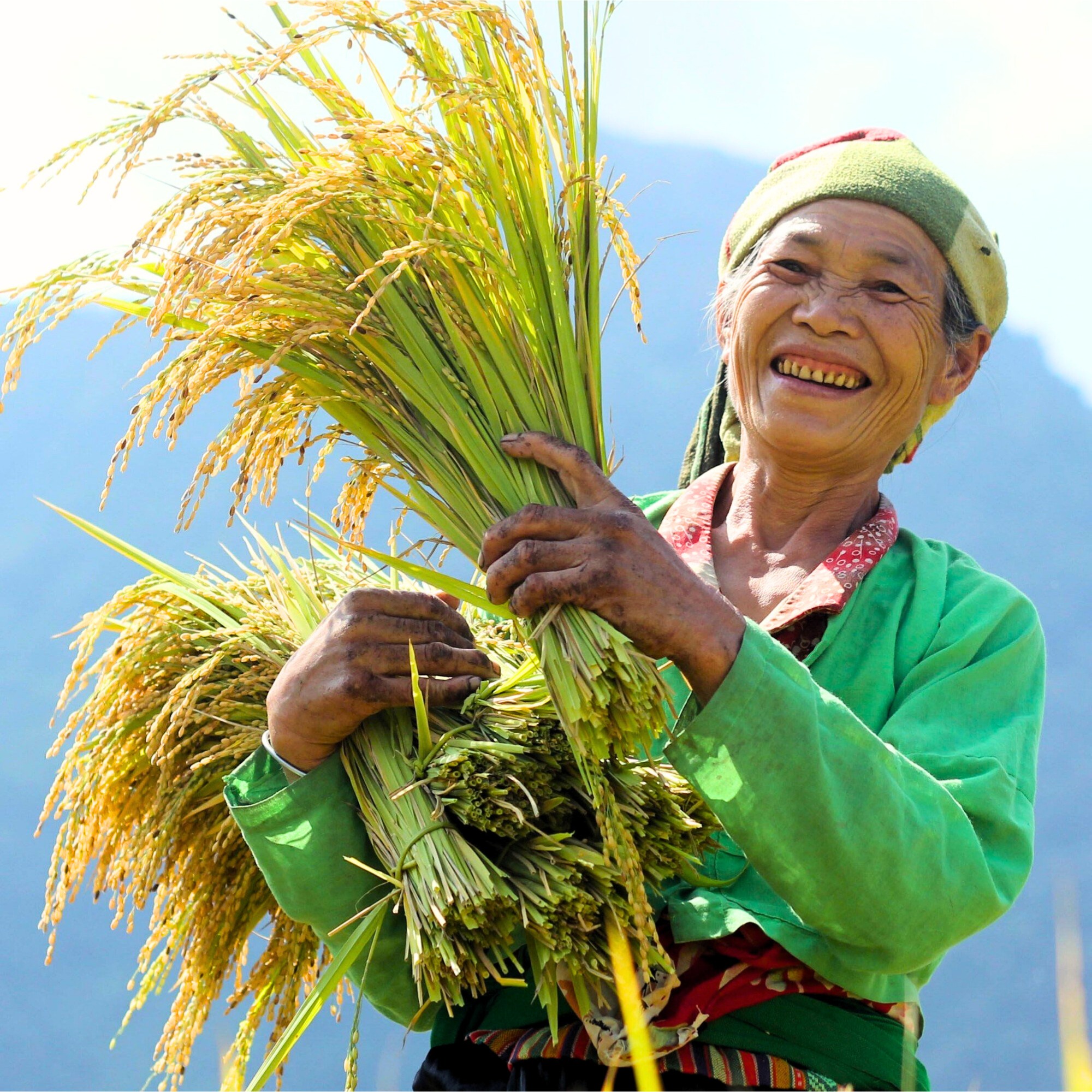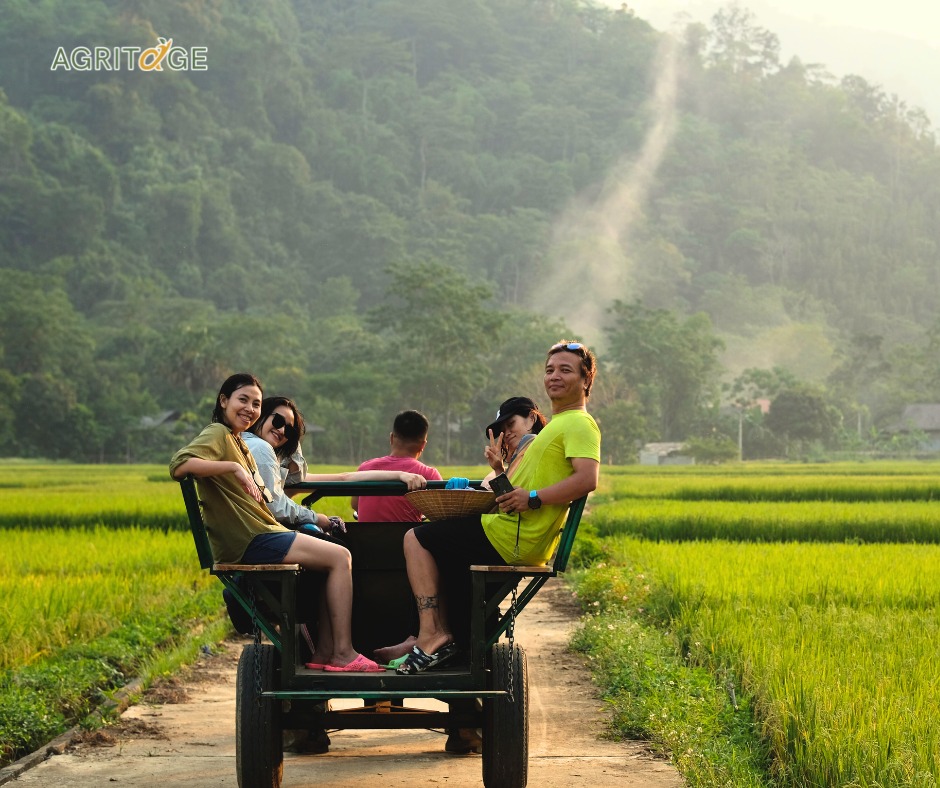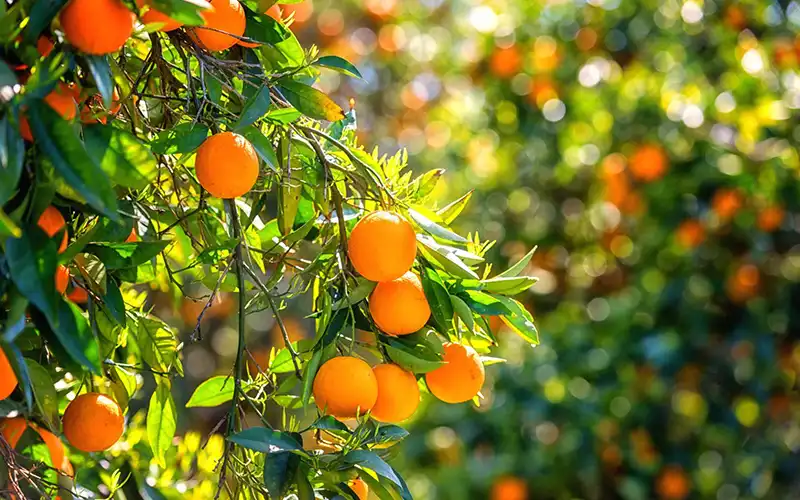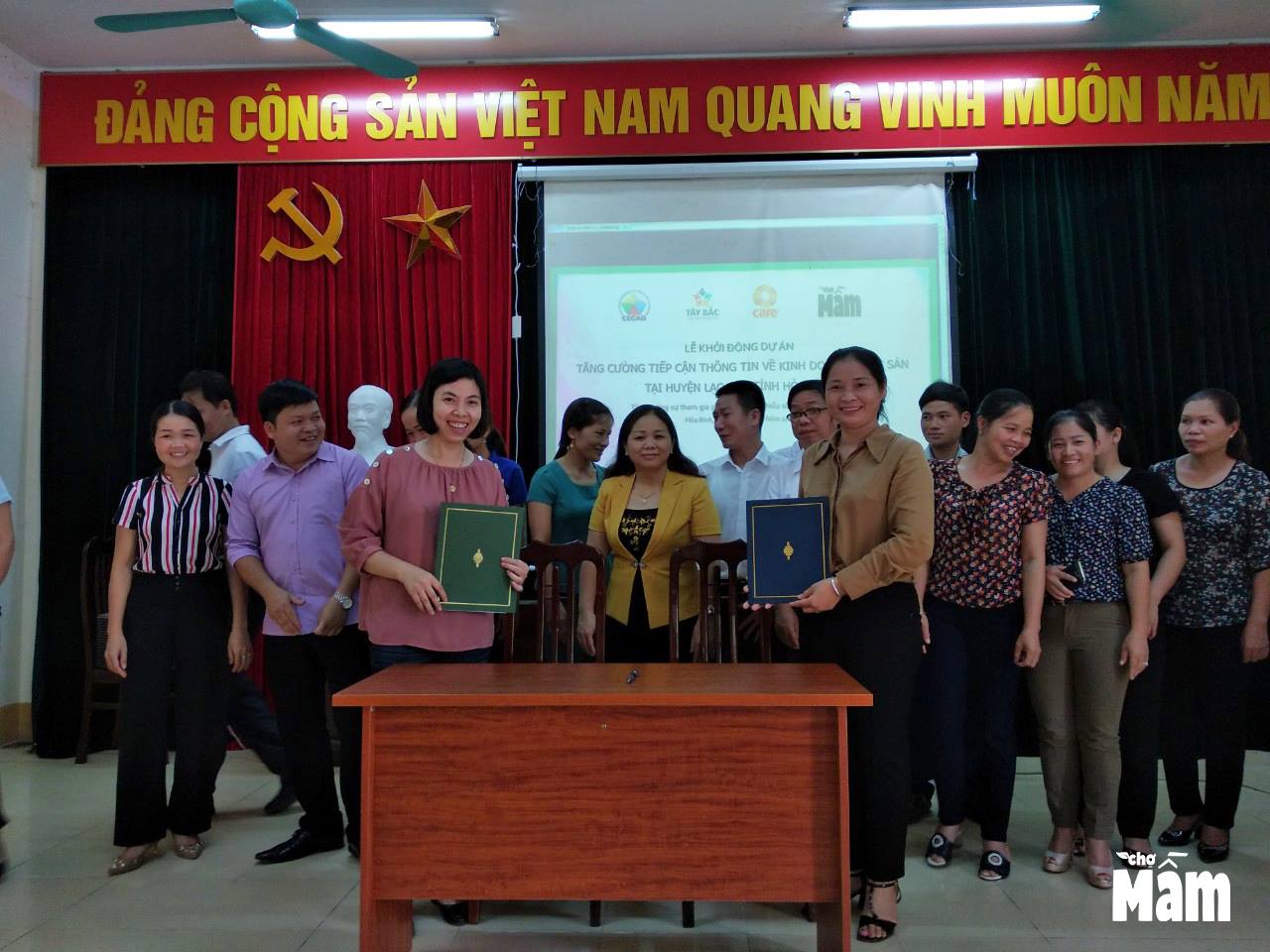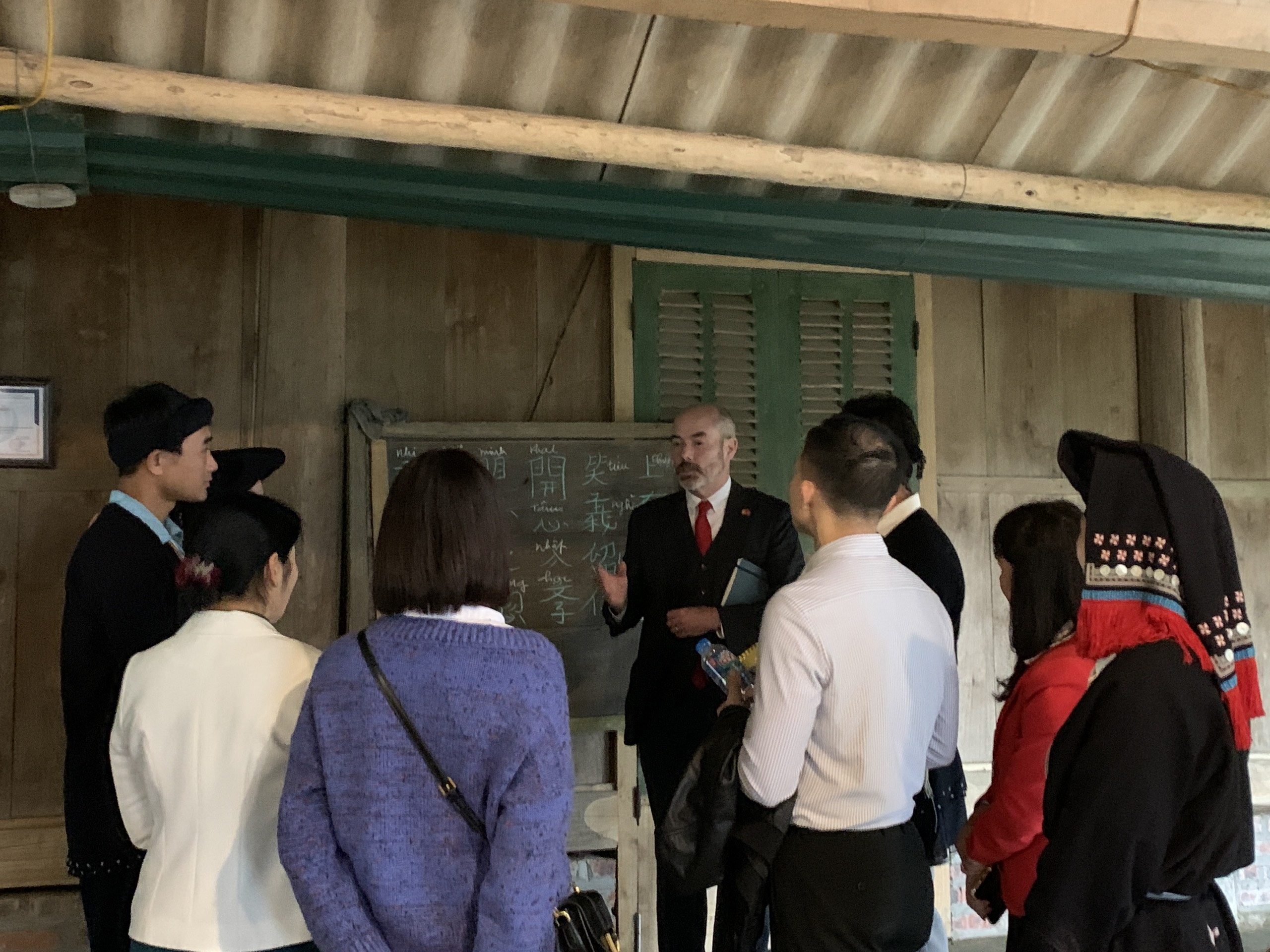Project “Conserving landscape systems in developing ecotourism for ethnic minority communities in Vietnam” is implemented by TABA Center for the period 2023 – 2025, under the sponsorship of the Embassy of Finland . The overall goal of the project is to contribute to preserving the natural landscape system in developing ecotourism in ethnic minority areas in Son La province.
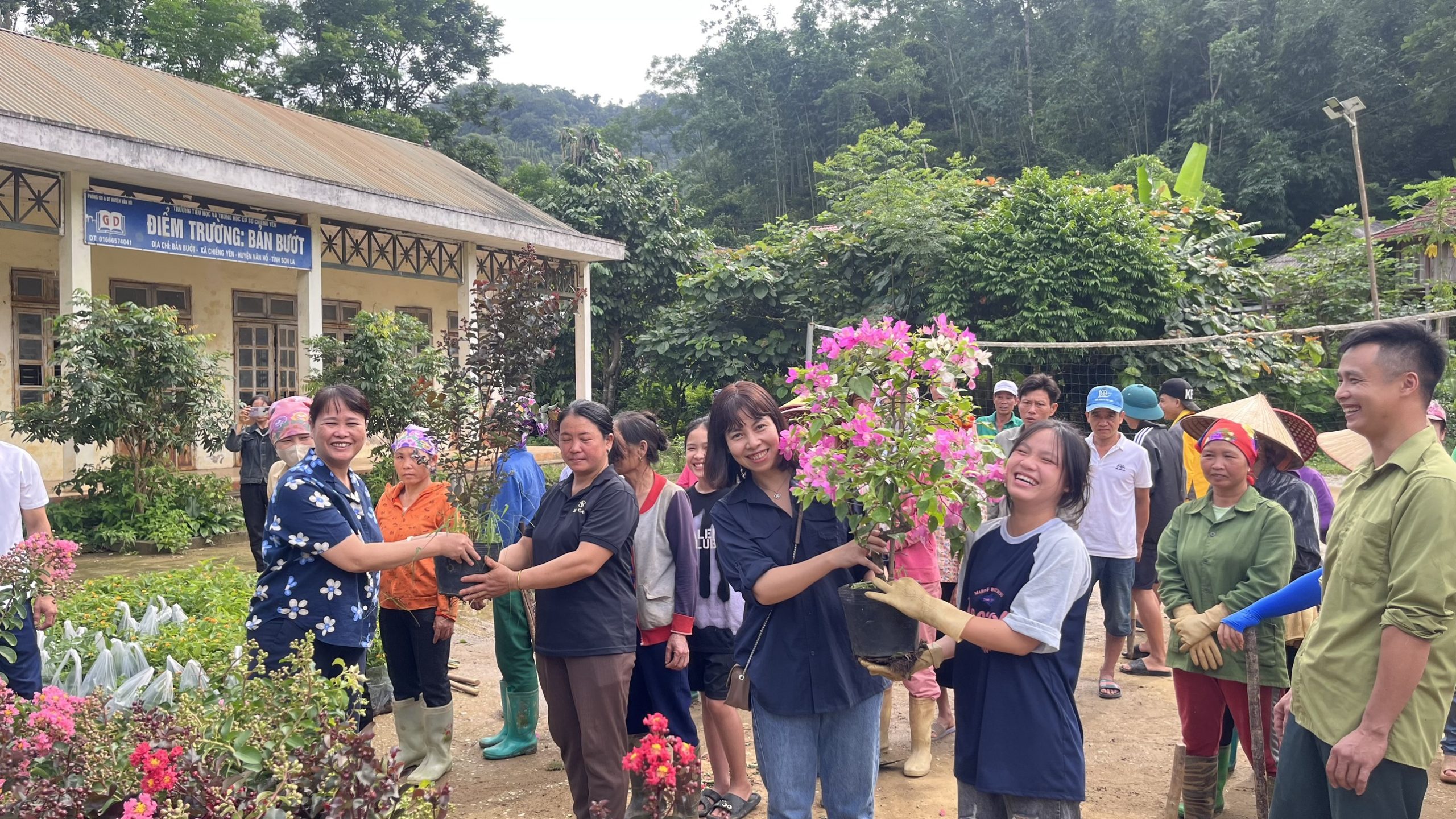
- OVERALL
Son La is the province with the largest population in the Northwest region, with 1.218 million people and 12 different ethnic groups living there. Ethnic minorities account for 82% of the population, including Thai ethnic group (53%); Mong (15%) and Muong (8%). Kinh group account for only 18%. Van Ho is a district with high forest coverage compared to the whole country (56.3%). The total forest area eligible for payment for forest environmental services in the district is up to 50,000 hectares, accounting for 66.7% of the total forest area of the district. Since 2002, Moc Chau district (Son La) has delivered forest land use rights certificates to village communities in the Van Ho area (now is Van Ho district).
With its natural landscape, hilly terrain, and diverse culture of 29 ethnic minority groups, tourism development has always been a significant potential and advantage of the region. In 2020, Hoa Binh province had 100 community-based tourism villages, while Son La province had 16 community-based tourism villages. In 2014, the Prime Minister issued the Decision No. 2050/QD-TTG approving the Master Plan for the Development of Moc Chau National Tourism Area, Van Ho district, Son La province, until 2020 with a vision towards 2030. On December 28th, 2022, the People’s Committee of Son La province issued Decision No. 2760/QD-UBND approving the project “Development of Moc Chau National Tourism Area meeting the recognition requirements”. In May 2019, the high-speed highway project connecting Hanoi, Hoa Binh, and Moc Chau was approved for investment, estimated commencement in December 2023. With the aforementioned investment directions and tourism development policies, Moc Chau and Van Ho districts in Son La province are becoming tourism hotspots, attracting domestic and international investors and promising many opportunities of tourism-based livelihood development for the Northwestern people.
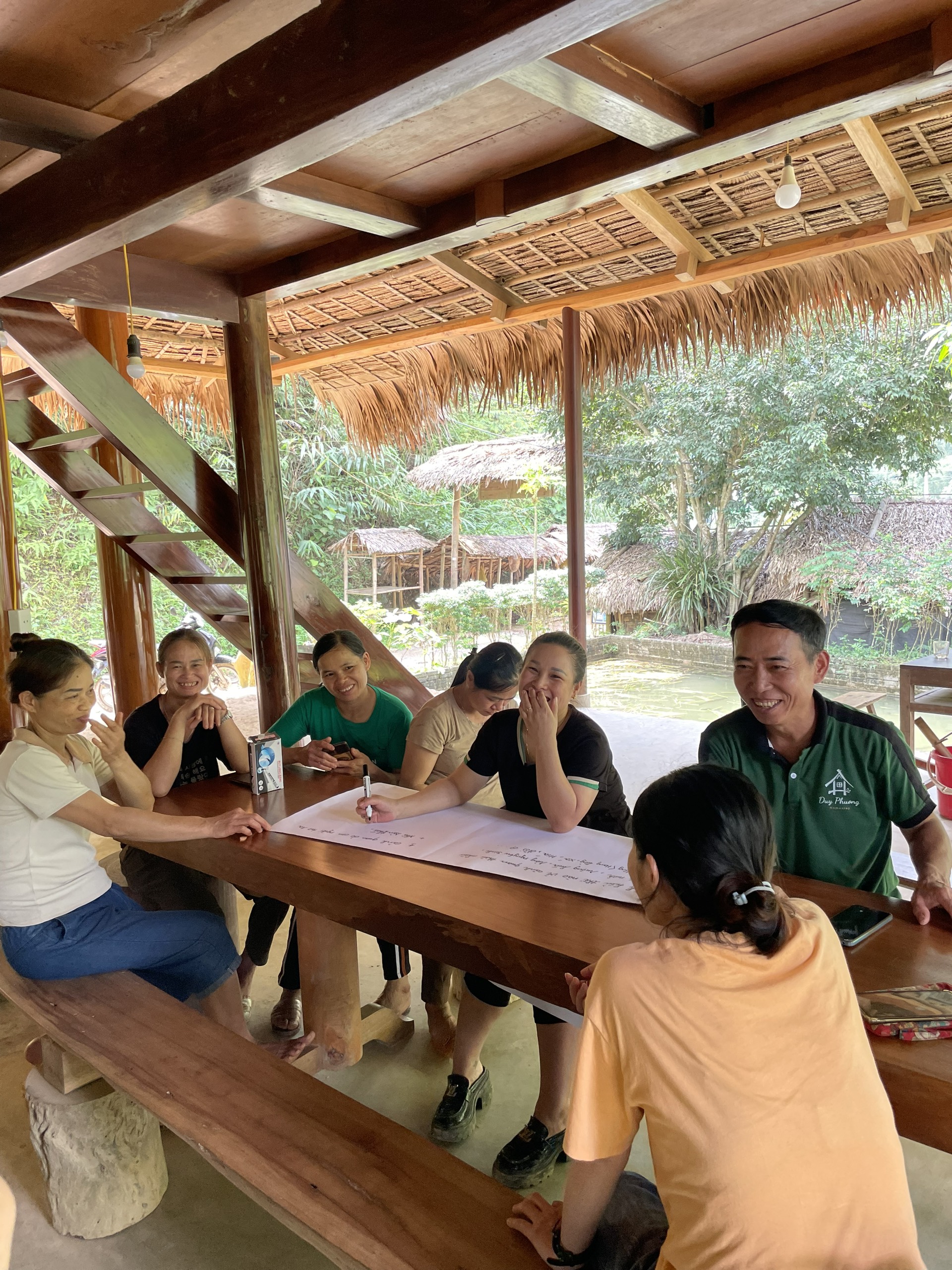
In addition to the policy advantages, people in the Northwest region have faced some challenges in tourism development. The challenge for the Northwest region in general, and Son La province in particular is how to implement a tourism development strategy to overcome barriers, protect the environment, preserve local culture, and ensure sustainable development. Many global researchers have argued that tourism industry can conserve biodiversity and natural landscape systems during the tourism development process through (1) increased awareness among local residents about the benefits of conserving biodiversity and natural landscape systems; (2) improved participation of local residents in maintaining biodiversity and natural landscape systems; (3) provided theoretical foundations in economics and financial support for nature conservation and biodiversity; and (4) an alternative economic solution to other forms of development that negatively impact biodiversity and natural landscape systems.
TABA has also undertaken community support activities for tourism development in Van Ho district since 2019. We focus on supporting the community in developing the Agricultural Heritage Village model (Agritage village in short), adhering to the 5 criteria for a world agricultural heritage site, which are: sustainable livelihoods and food security, biodiversity in agriculture, strong community structure, preservation and development of cultural values and indigenous knowledge, and preservation and development of typical landscape systems. This model has been strongly developed in over 60 countries by the International Food and Agriculture Organization (FAO). In Van Ho, an Agricultural Heritage Village in Buot village has been established and operated since 2019. Presently, the project phased out, the local residents have self-operated production groups and tourism service groups through local cooperatives and connections with some travel agencies in Hanoi for agricultural product marketing. With the self-resources of the local community and TABA, we continue to accompany the local people to maintain organic farming models.
However, the resource allocation primarily focuses on developing agricultural models, with less emphasis on supporting people in tourism development, especially in raising awareness of the importance of the natural landscape system in sustainable ecotourism for their sustainable livelihood development. Although many households have implemented community-based tourism models, their understanding of the role of the natural landscape system remains limited. Furthermore, ecotourism development is still fragmented and lacks community integration in its development. This reality has led to negative impacts on the ecological landscape of the Northwestern mountains, such as the destruction of certain scenic areas, replaced by areas of exotic plantations or tourist accommodations.
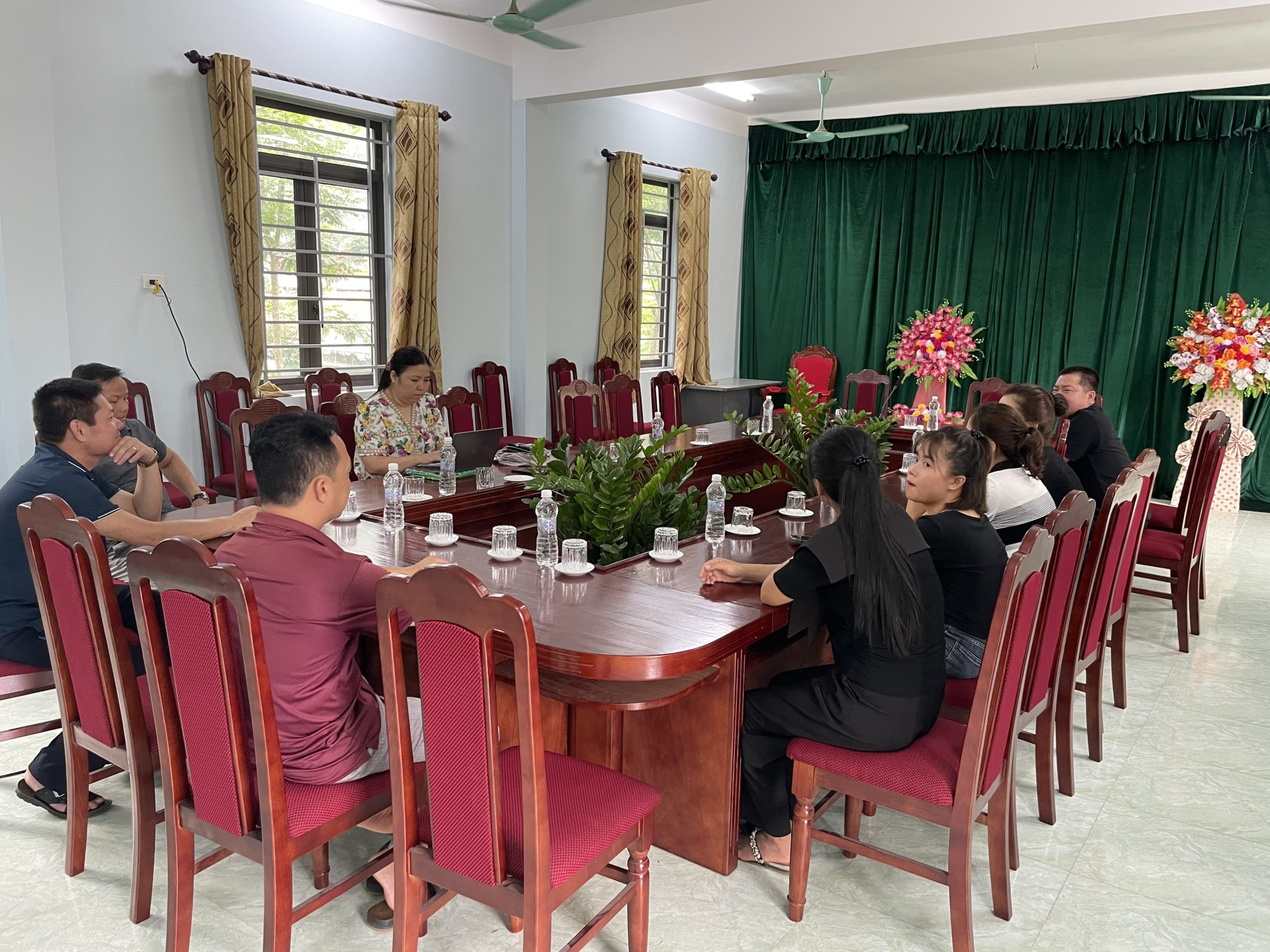
Based on the aforementioned analysis, it is crucial to evaluate the development of ecotourism in ethnic minority areas in Vietnam in order to have practical foundations for summarizing lessons learned, particularly in ecotourism development linked to natural landscape ecosystem preservation. The implementation of TABA activities and consultations with local authorities and residents have shown that in order to ensure sustainable ecotourism development for ethnic minority communities, it is essential to develop an ecotourism model that integrates natural landscape system conservation and development. This model should be based on experiences and lessons learned from current implementations in Vietnam. The new ecotourism model will be implemented by inheriting the Agricultural Heritage Village model (Agritage Village Model) and will serve as a prototype for ecotourism villages of ethnic minority communities in Son La province specifically, and in Vietnam as a whole.
Within the framework of the proposed FLC project, we aim to support the conservation and development of natural landscape systems for sustainable ecotourism in ethnic minority communities in Vietnam. The project will conduct research on existing community-based tourism and models in ethnic minority areas and utilize an evidence-based approach to enhance the ecotourism village model integrated with natural landscape ecosystem conservation in Van Ho district, Son La province.
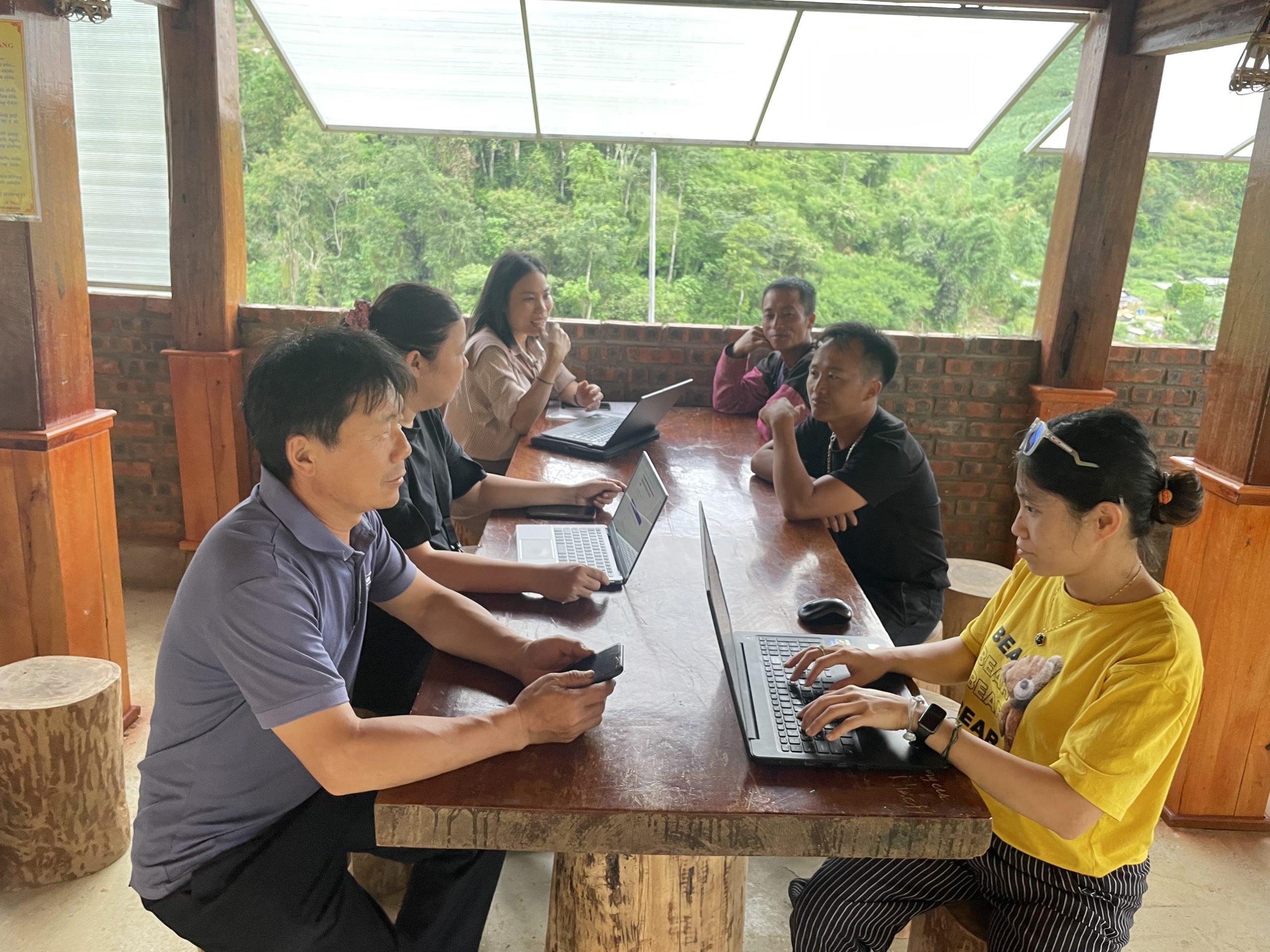
- IMPLEMENTING TIME
– Time: From December 2023 to July 2025
– Location: Van Ho district, Son La province
III. OBJECTIVES AND ACTIVITIES
The overall objective is to contribute to the natural landscape system conservation in ecotourism development in ethnic minority regions in Son La province.
Result 1: The most suitable models are selected based on best practices of ecotourism models integrated with natural landscape conservation and development in ethnic minority areas.
Result 2: The implemented ecotourism models integrated with natural landscape ecosystem conservation and development in ethnic minority areas are showcased.
– Organize a community meeting on the implementation of ecotourism models integrated with natural landscape conservation and development.
– Organize a local government meeting on the implementation of ecotourism models integrated with natural landscapes conservation and development.
– Organize one training course to enhance awareness of the role of conservation and development of landscape systems in tourism development, as well as alternative economic solutions when engaging in natural landscape system preservation.
– Initiate and organize a campaign to restore and beautify the natural landscapes in the selected commune.
Result 3: Ecotourism integrated with the conservation of natural landscape systems in ethnic minority areas is developed by enhancing market connections.
– Organize a sharing session between ecotourism agencies and local communities on the market demand for destinations associated with landscape system conservation and development.
– Organize a destination visiting program in Van Ho for travel companies and media agencies.
– Organize an Eco-tourism Week in Van Ho district.
- Organize a panel discussion seminar with policy makers and travel agencies on protecting natural landscapes in the development of eco-tourism in ethnic minority regions.
- Provide support for the participation of community tourism groups from Van Ho district in national/international tourism fairs held in Hanoi.
- Organize a photography contest and exhibition showcasing natural landscapes, cultural aspects and natural landscapes conservation of ethnic minority communities.
- Organize a study tour to connect and share models of landscape ecosystems conservation and development in tourism development for current networks on ecosystems conservation and development.
